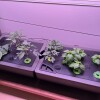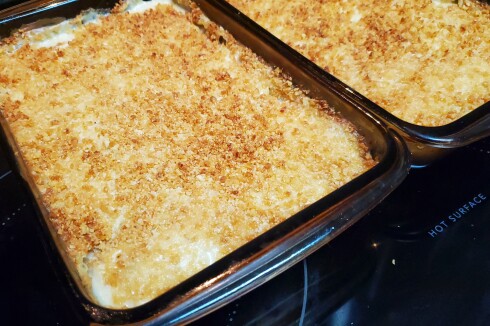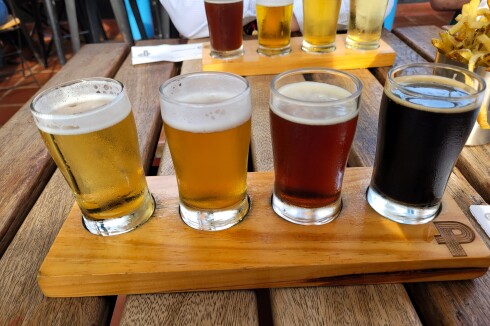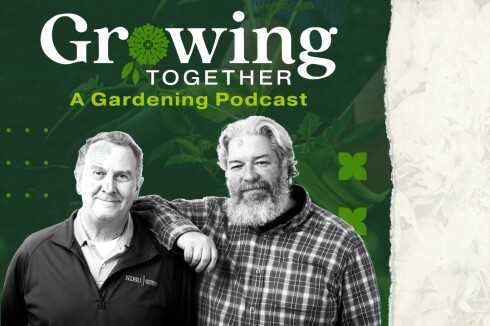Basic vegetable gardening hasn’t changed much over time; we plant, tend crops, harvest and eat, as humans have done for thousands of years. Occasionally, though, a new development revolutionizes the world of gardening.
One seemingly simple, yet dramatic, turning point was the invention of plastic cell packs, pots and trays that revolutionized the greenhouse industry after the 1950s. Plastic containers made it handier for greenhouse growers to produce and sell flower and vegetable plants, and more convenient for customers to purchase and transplant.
ADVERTISEMENT
In fact, most people who plant America’s number one homegrown vegetable — tomatoes — are probably transplanting them out of a plastic cell pack or pot. Even gardeners who start their own tomato plants often do so in recycled cell packs, trays and pots.
Is another gardening revolution on the horizon involving these very tomatoes?
The time-honored method for raising garden tomatoes is to transplant pre-started plants, either ones you buy, or ones you start yourself, into the garden soil after spring weather has warmed.
That practice might be about to change, if Burpee’s new tomato and pepper varieties perform true to advertising.
Burpee, a familiar name to gardeners, is making headlines with cultivars they’ve developed and trademarked as Burpee Garden Sown Tomatoes and Peppers. According to their seed catalog, you simply plant the seeds directly out into the garden, instead of using transplants.
Their catalog describes “Five new tomatoes and peppers bred for direct outdoor sowing in your garden, in any region. Easy-growing, direct-sowing revolutionary hybrids with early and abundant harvests.”
Planting tomato seed directly into outdoor garden soil in Northern gardens certainly isn’t the traditional way of growing tomatoes. There are legitimate reasons why transplanting starter plants has been the norm.
Tomato seed requires warmth to germinate, and chilly spring soil can delay sprouting of direct-sown seed until soil warms. Starting the plants early indoors or in a greenhouse usually gives at least a six-week head start to ripe tomatoes.
ADVERTISEMENT
Using transplants is the customary way of growing many vegetables that require considerable time to maturity, including peppers, eggplant, cabbage, cauliflower and broccoli, in addition to tomatoes. Planting seeds directly outdoors usually results in much later harvests.
This might end if Burpee’s claims ring true. The first in their new series of direct-seed tomatoes is Groundswell Tomato. Burpee says “Welcome to the tomato revolution! We bred ‘Groundswell,’ the first-ever garden-sown tomato, to save you time and avoid transplant shock. Our new large slicer ripens as early as all other beefsteak types.”
The next in their direct-seeding series is ‘Rain Drops’ Tomato, so named because you can “drop a seed in a garden row and watch the rain help it grow bite-sized cherry tomatoes.” The information also says that seeding it directly will produce fruits as early as using transplants.
Burpee’s Garden Sown series also includes three pepper cultivars, Sow Sweet Snacking Pepper, The Groundfather Italian-type Pepper, and Lavaland Hot Pepper.
Burpee indicates a major advantage of direct seeding is to reduce transplant shock, allowing plants to “grow strong, healthy roots by sowing seed outdoors, encouraging natural resilience and vitality.”
Burpee advises: “Sow in the garden in fertile, well-worked soil approximately one week before the last possible spring frost.”
Burpee’s products are sold nationwide. Will these direct-seeded tomatoes and peppers work for us in the Northland, since their description says in “any region”?
Let’s discuss it. Regarding transplant shock, if you harden plants off beforehand and provide some wind protection for a few days, most gardeners find that tomatoes suffer little setback after planting. But transplant shock is always a possibility.
ADVERTISEMENT
An advantage of using transplants is that tomato plants benefit from deep planting, because the plants produce roots all along the buried stem, creating a more robust root system and making the plants less susceptible to wind whipping. If tomatoes are direct-seeded into the garden, the opportunity to situate plants deeper is lost.
The primary reason for using transplants is to get fruits earlier. Will direct-seeded tomatoes and peppers catch up to transplants? Burpee says they will.
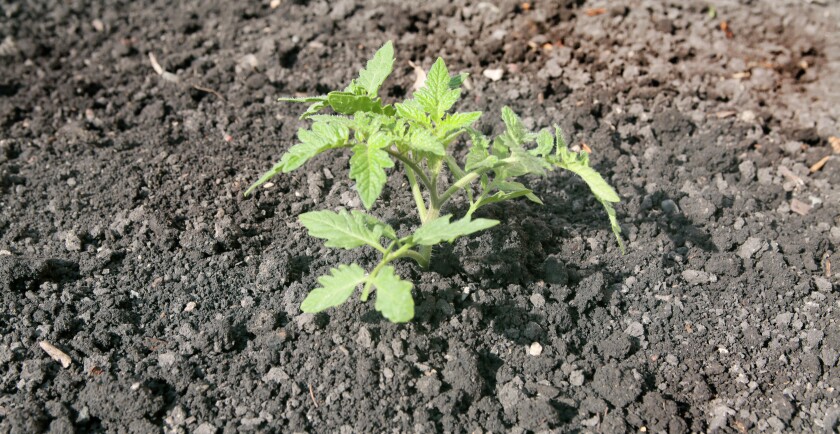
When considering any new tomato cultivar, the listed “days to maturity” is important, because it categorizes types as early, midseason or late, which is vital information for when tomatoes will ripen. The days listed traditionally refer to the number of days from transplanting into the garden until first fruits. It’s not the date of seeding.
Burpee’s Groundswell and Raindrops are listed as 70 days to maturity. As they indicate, this isn’t the number of days from seeding, but rather “the average number of days from when the plant is actively growing in the garden to the expected time of harvest.”
Will these cultivars revolutionize the way we produce tomatoes, making transplants obsolete? I love trying new things, and I’m definitely trying these.
This spring I’ll direct-seed Burpee’s new cultivars following their guidelines, plus my usual transplants, and we’ll see what happens. Stay tuned.




